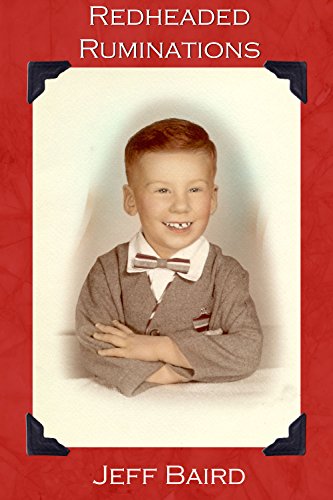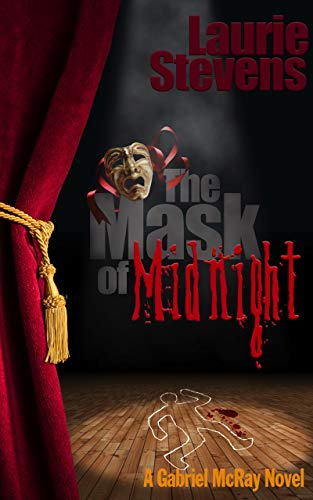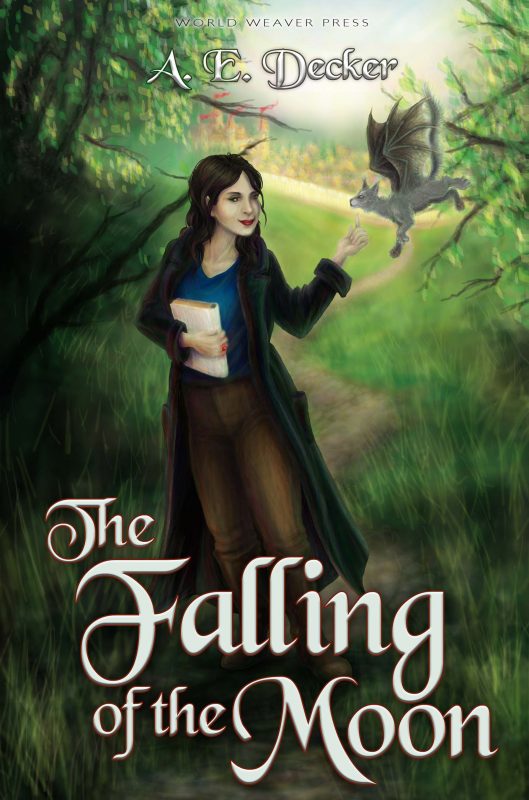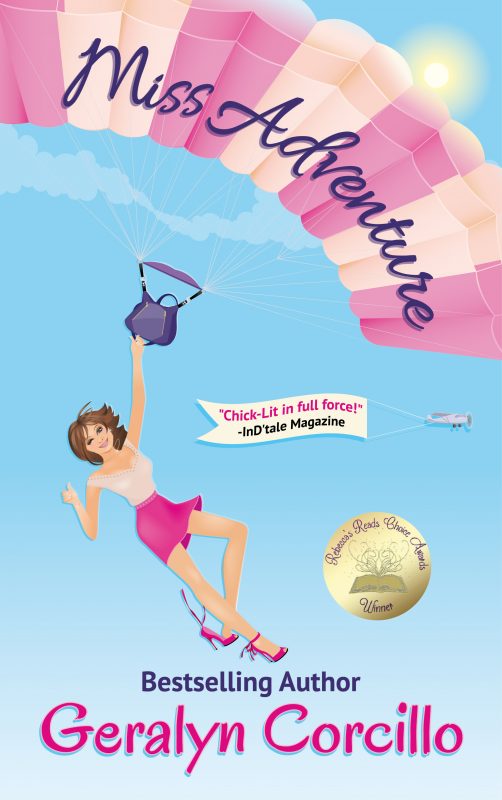1950s Life & Times of the Rich and Famous in Los Angeles
April 3, 2023 by Janet Elizabeth Lynn and Will Zeilinger in category Partners in Crime by Janet Elizabeth Lynn & Will Zeilinger, Writing tagged as 1950s, hard-boiled mysteries, history, Hollywood, The Skylar Drake Murder Mystery Series While researching the 1950s, we came across memoirs of Los Angeles. Since our Private Eye character, Skylar Drake, moonlights as a stuntman for the movie industry, the Hollywood scene during that time is an intricate part of each book.
While researching the 1950s, we came across memoirs of Los Angeles. Since our Private Eye character, Skylar Drake, moonlights as a stuntman for the movie industry, the Hollywood scene during that time is an intricate part of each book.
The regular family life of the rich and famous was not at all typical of everyday life. In fact, it was pretty exhausting! The executives were in constant fear of making the wrong decisions and losing their position (lots of backbiting). There were endless days of being “on” for the public. They were forever giving lunches, dinners, and cocktail parties at their homes for celebrities or visiting dignitaries. Their dinners were lavish and beautiful, as were their homes. Entertaining was constant with little private time.
The regular family life of the rich and famous was not at all typical of everyday life. In fact, it was pretty exhaustin g! The executives were in constant fear of making the wrong decisions and losing their position (lots of backbiting). There were endless days of being “on” for the public. They were forever giving lunches, dinners and cocktail parties at their homes for celebrities or visiting dignitaries. Their dinners were lavish and beautiful, as well as their homes. Entertaining was constant with little private time.
g! The executives were in constant fear of making the wrong decisions and losing their position (lots of backbiting). There were endless days of being “on” for the public. They were forever giving lunches, dinners and cocktail parties at their homes for celebrities or visiting dignitaries. Their dinners were lavish and beautiful, as well as their homes. Entertaining was constant with little private time.
I found stories of lunch with Barbara Hutton (heiress of the Woolworth’s chain) at the lavish garden of Merle Oberon, or a candle light dinner at the home of Edie Goetz, (daughter of Louis B. Mayer, co-founder of MGM.) And don’t forget entertaining royalty, moguls, and titans of the day. You couldn’t just throw hamburgers on the BBQ,  whip up a potato salad and lounge by the pool!Tent parties in which the pool was covered to create a dance floor were a regular Saturday night event in Hollywood and Beverly Hills. On Sundays,
whip up a potato salad and lounge by the pool!Tent parties in which the pool was covered to create a dance floor were a regular Saturday night event in Hollywood and Beverly Hills. On Sundays,
Tent parties in which the pool was covered to create a dance floor were a regular Saturday night event in Hollywood and Beverly Hills. On Sundays, church was not like your typical worship services. The Church of the Good Shepherd in Beverly Hills was nicknamed Our Lady of the Cadillacs du e to the expensive cars that filled the parking lot for 10 am Mass.
e to the expensive cars that filled the parking lot for 10 am Mass.
Incorporating Skylar Drake’s assigned visits by his agent or the studio or working security into the stories has been fun. We’ve enjoyed dressing the characters, describing the gardens and homes, and the food served by the rich and famous of Los Angeles, 1950s.
The Skylar Drake Series
Scandal
March 3, 2023 by Janet Elizabeth Lynn and Will Zeilinger in category Book Research, Partners in Crime by Janet Elizabeth Lynn & Will Zeilinger tagged as Hollywood, Scandals, Twilight Zone, Vic Morrow
Safety Working Conditions in the Hollywood Film industry
The civil and criminal actions lawsuit that came after the accident, during the filming of Twilight Zone, was the result of negligence. It was scandalous as the film’s director, John Landis, was charged and tried for manslaughter, along with other members of the film crew. They were eventually acquitted in terms of criminal liability, but civil penalties were assessed. Landis continued his career with little negative impact, but he found several of his long-term friendships with other filmmakers ended as a result of his “condescending attitude” towards the accident.
Millions of dollars were awarded to the families of the victims, mostly paid by insurance companies. Landis deflected the blame for the accident, claiming that the cause of the accident had been in part a special effects fireball detonated by error.
The television series The Twilight Zone was a popular weekly program from 1959 to 1964, the brainchild of writer and director Rod Serling. Its popularity resulted in a demand for reruns for years, and eventually was adapted as a full-length motion picture.
During the filming of the motion picture verson, an accident involving a helicopter killed actor Vic Morrow and two child actors, with multiple injuries to the helicopter crew and film personnel onboard. Morrow and one of the children were decapitated by the helicopter’s rotor; the other child was crushed. The accident brought to light unsafe working safety, particularly for children on film sets, and years of litigation which kept the story on the front pages for a decade.



On July 23, 1982, Morrow, 53, and two child actors, seven-year-old Myca Dinh Le and six-year-old Renee Shin-Yi Chen, were filming on location in California, in an area that was known as Indian Dunes, near Santa Clarita. They were performing in a scene for the Vietnam sequence, in which their characters attempt to escape from a deserted Vietnamese village from a pursuing U.S. army helicopter. The helicopter was hovering at approximately 24 feet above them when the heat from special effect pyrotechnic explosions delaminated the rotor blades (the blade material fractures into layers) causing the helicopter to plummet and crash on top of them, killing all three instantly.
Special-effects explosions on the set caused the pilot of the low-flying craft to lose control and crash into the three victims. The accident took place on the film’s last scheduled day of shooting.
Co-director John Landis and four other men working on the film, including the special-effects coordinator and the helicopter pilot, were charged with involuntary manslaughter. It was the first time a film director faced criminal charges for events that occurred while making a movie. During the trial, the defense maintained the crash was an accident that could not have been predicted while the prosecution claimed Landis and his crew had been reckless and violated laws regarding child actors, including regulations about their working conditions and hours. The trial lasted ten-months with the jury acquitted all five defendants in 1987. The families of the three victims filed lawsuits against Landis, Warner Brothers, and Twilight Zone co-director and producer Steven Spielberg who settled for undisclosed amounts. Twilight Zone: The Movie was released in the summer of 1983. The film received mixed reviews.
Click here for the news report of the accident.
Janet and Will’s Skylar Drake Mystery Series
BOOK RESEARCH—PEOPLE WATCHING by Will Zeilinger
February 3, 2023 by Janet Elizabeth Lynn and Will Zeilinger in category Book Research, Partners in Crime by Janet Elizabeth Lynn & Will Zeilinger tagged as Book Research, People watching, writers, writers life
Researching for a book takes many forms. When it comes to finding unique characters, I love to people-watch. That activity allows me to discover interesting physical characteristics and mannerisms I can use to flesh out some of the people (and animals) who make up the cast of characters. For most of my working career, I was a visual artist, which included being a graphic designer, photographer, illustrator, and cartoonist. Most of my projects involved sketching out how an ad or layout would appear. I always carried something to sketch out interesting people or places I encountered.
People-watching is especially helpful when writing a contemporary piece. Fashions (especially among teens) change quite often. Different age groups have certain “uniforms” but it’s best to avoid clichés. In the summer, for instance, older male baby boomers are fond of Hawaiian shirts or silk-screened T-shirts, cargo shorts, Ray-Ban sunglasses, and sandals. While women of the same age can be found wearing crop pants, tank tops or French-cut tees, and thin-strap sandals. Both genders are often found with a “fanny pack” strapped around their waist or slung over their shoulder. This doesn’t apply to everyone in that age group. More artistic women may gravitate to a caftan or flowing broomstick skirt and maybe a load of clunky costume jewelry.



Besides clothing, the way a person wears their hair can give clues about the character you are building in your mind. Do the men look like they get haircuts every week, once a month, or is it shaggy like they rarely ever get it cut at all? Do they get it cut as if they are still in active military service? Hairstyles can tell you if your character is one who is trying to recapture their youth, or if they go to the same salon/barber that their grandparents did.
Watching people can expose you to a multitude of variations. Don’t forget to look at their posture and stance. That can say a lot about the character’s attitude or general mood.
I live near the beach, and although it is not summer at the time of this writing, teens can still be found with a skateboard in hand, earbuds, and, of course, the ubiquitous cell phone.
If your story takes place in the Midwest or in New England, the whole scenario changes.
Some great places to watch people being people are checkout lines at big box stores, sporting events, airports, doctor/dentist waiting rooms, parks, libraries, post offices and other public places. Parents and grandparents are very interesting to watch when they are picking up kids/grandkids from school.



Wherever you choose to observe potential characters, remember to be courteous and subtle. Especially if you are researching children or young people. Don’t make it obvious you are taking notes. Of course, many writers rely on those they know to provide these character clues, but since we all belong to different socio-economic groups, using only those around us can skew your character descriptions.
Be open-minded and have fun looking for characters in the people you watch. It’s a great lunchtime activity—just, don’t stare. We’d all like to see these people in your book.
The Skylar Drake Series Co-authored by Will and His Wife Janet Elizabeth Lynn
Elizabeth Taylor and Eddie Fisher: Scandal
January 3, 2023 by Janet Elizabeth Lynn and Will Zeilinger in category Partners in Crime by Janet Elizabeth Lynn & Will Zeilinger tagged as Debbier Reynolds, Eddie Fisher, Elizabeth Taylor, Hedda Hopper, Scandal
It’s hard to forget the 1950s scandal with Eddie Fisher and Elizabeth Taylor, leaving a furious Hedda Hopper, and heartbroken Debbie Reynolds.
Hedda Hopper, a famous newspaper gossip column writer, was a constant advocate for Taylor, but she insisted that Fisher and Taylor were just friends. When the affair went public in September 1958, everyone was shocked…except for maybe the rest of the world.



The newspapers were full of nasty comments by Hedda, Fisher, Taylor and Reynolds.
Taylor issued a statement declaring “Eddie is not in love with Debbie and never has been [. . .] You can’t break up a happy marriage. Debbie and Eddie’s never has been.”
Hopper, angry that Taylor had deceived her, wrote a blistering critique, including a misquote of Taylor that would be reprinted hundreds of times over the next decade: “Mike is dead, and I am alive.”
Then the front page of the Los Angeles Times announced that “Debbie Will Seek Divorce from Eddie.” Followed by an official statement from Fisher declaring that his marriage, “was headed for break-up long before he even knew [. . .] Taylor.”
Reynolds responded, “It seems unbelievable [. . .] to say that you can live happily with a man and not know that he doesn’t love you. That, as God is my witness, is the truth [. . .] I now realize when you are deeply in love how blind you can be. Obviously I was. I will endeavor to use all my strength to survive and understand for the benefit of my two children.”
From that point on, it was a field day for the fan magazines, gossip columns and radio/talk shows.
Debbie Reynolds and Elizabeth Taylor were close friends since high school and Taylor had been married to Fisher’s best friend, producer Mike Todd, who had died in a plane crash in 1958. In fact, both couples (Reynolds and Fisher, and Taylor and Todd) were friends and double dated.
After the unexpected death of Taylor’s third husband, Mike Todd, Reynolds suggested Fisher go to Taylor to comfort her. And that was the beginning of the affair.

Fisher and Taylor got married the same day that his and Reynolds’ divorce was finalized. Eddie Fisher and Elizabeth Taylor were married from 1959 to 1964.
The fact that Fisher left Reynolds with small children for another women ruined his career. The gossip columns and magazines feasted on the breakup and the romance for months, and the adverse publicity caused NBC to cancel “The Eddie Fisher Show” for morality clauses. Though Reynolds had money problems, she managed to get by, then offers began to flow in. Taylor’s image was tarnished but didn’t stop her from continuing to get offers, and another relationship budded with Richard Burton.
Some of Janet’s and Will’s Books
The Birth of the Christmas Card
December 3, 2022 by Janet Elizabeth Lynn and Will Zeilinger in category Partners in Crime by Janet Elizabeth Lynn & Will Zeilinger tagged as Christmas cards, E.J. Williams, Janet Elizabeth Lynn, Research for Writers, The history of Christmas cards, Will Zeilinger
The First Christmas Card
John Callcott Horsley designed the world’s first commercially produced Christmas card for Sir Henry Cole in 1843.
Cole was part of the elite social circle in Victorian England. During the holiday season of 1843, having too many friends caused Cole much anxiety.
The old custom in England of sending Christmas and New Year’s letters boomed with the British postal system introducing the “Penny Post.” A letter or card could then be sent anywhere in the country for the cost of a penny stamp.
Now, everybody was sending letters, but Sir Henry Cole was a busy man. He watched the stacks of unanswered correspondence and fretted over what to do. In Victorian England, it was considered impolite not to answer mail, and being the 1840s equivalent of an A-Lister, Cole had to figure out a way to respond to all of these people.
Cole asked his artist friend, John Callcott. Horsley, to design an idea he had sketched out. Cole had a thousand copies on stiff cardboard made by a London printer. On each postcard he had printed “TO:_____” so he could “personalize” the generic greeting “A Merry Christmas and A Happy New Year to You.”
Thus was born the first Christmas card.


The Modern Christmas Card
In the early 1900s, a man named Joyce Hall started a revolution that resulted in creating the modern-day Christmas card.
In 1905, he and his brothers spent $540 to buy picture postcards to sell to store owners and retailers in Norfolk, Nebraska. A few years later, they opened their own little store in Kansas City, Missouri, selling the postcards and other greeting cards, but the store sadly burned down just a little while later. After that, The Hall Brothers bought an engraving business and printed their own cards.
Their customers wanted to write more than what would fit on a postcard. This resulted in a card that was 4 x 6 inches folded once, and inserted into an envelope. By 1928, the cards were being produced under the brand we all know today as Hallmark.
Christmas cards in the twentieth century reflected the times and artistic styles of each decade.
With the advent of computers and digital photography, families could now shoot, design, and print their own customized cards right at home.





The Most Popular Christmas Card of All Time
Debuting in 1977, one particular greeting card quickly took hold as the bestselling Christmas card design of all time.
Hallmark artist Ruth Morehead designed the angelic Three Little Angels artwork that depicts a trio of adorable cherubs. Unlike seasonal cards that come and go with each passing year, ‘Three Little Angels’ was so popular that it was sent over 36 million times in its first two decades of production. According to Hallmark’s director of creative writing, Kristin Riott, “Cuteness and God together are unbeatable.”

Christmas Cards Today
Technology advancements in recent decades are making Christmas cards a little less popular. Social media platforms make it easier to stay connected with friends and family all over the world, and face-to-face video conferencing helps form meaningful connections, especially around the holidays.
Along with Mother’s Day, Christmas cards are still the most popular season for card-buying, card making, & sending, with over 1.5 billion individual & boxed cards purchased every year.


Janet and Will’s Skylar Drake Mystery Series
Affiliate Links
A Slice of Orange is an affiliate with some of the booksellers listed on this website, including Barnes & Nobel, Books A Million, iBooks, Kobo, and Smashwords. This means A Slice of Orange may earn a small advertising fee from sales made through the links used on this website. There are reminders of these affiliate links on the pages for individual books.
Search A Slice of Orange
Find a Column
Archives
Featured Books
STARTING OVER WITH THE SHERIFF
Starting anew? But what if he learns the truth?
More info →THE FALLING OF THE MOON
In the gloomy mountains of Shadowvale, Ascot Abberdorf is expected to marry a somber Count and settle down to a quiet life terrorizing the villagers.
More info →
MISS ADVENTURE
Can a daydreaming city girl find her backbone by going on daring adventures with an adrenaline junkie?
More info →Newsletter
Contributing Authors
Search A Slice of Orange
Find a Column
Archives
Authors in the Bookstore
- A. E. Decker
- A. J. Scudiere
- A.J. Sidransky
- Abby Collette
- Alanna Lucus
- Albert Marrin
- Alice Duncan
- Alina K. Field
- Alison Green Myers
- Andi Lawrencovna
- Andrew C Raiford
- Angela Pryce
- Aviva Vaughn
- Barbara Ankrum
- Bethlehem Writers Group, LLC
- Carol L. Wright
- Celeste Barclay
- Christina Alexandra
- Christopher D. Ochs
- Claire Davon
- Claire Naden
- Courtnee Turner Hoyle
- Courtney Annicchiarico
- D. Lieber
- Daniel V. Meier Jr.
- Debra Dixon
- Debra H. Goldstein
- Debra Holland
- Dee Ann Palmer
- Denise M. Colby
- Diane Benefiel
- Diane Sismour
- Dianna Sinovic
- DT Krippene
- E.B. Dawson
- Emilie Dallaire
- Emily Brightwell
- Emily PW Murphy
- Fae Rowen
- Faith L. Justice
- Frances Amati
- Geralyn Corcillo
- Glynnis Campbell
- Greg Jolley
- H. O. Charles
- Jaclyn Roché
- Jacqueline Diamond
- Janet Lynn and Will Zeilinger
- Jaya Mehta
- Jeannine Atkins
- Jeff Baird
- Jenna Barwin
- Jenne Kern
- Jennifer D. Bokal
- Jennifer Lyon
- Jerome W. McFadden
- Jill Piscitello
- Jina Bacarr
- Jo A. Hiestand
- Jodi Bogert
- Jolina Petersheim
- Jonathan Maberry
- Joy Allyson
- Judy Duarte
- Justin Murphy
- Justine Davis
- Kat Martin
- Kidd Wadsworth
- Kitty Bucholtz
- Kristy Tate
- Larry Deibert
- Larry Hamilton
- Laura Drake
- Laurie Stevens
- Leslie Knowles
- Li-Ying Lundquist
- Linda Carroll-Bradd
- Linda Lappin
- Linda McLaughlin
- Linda O. Johnston
- Lisa Preston
- Lolo Paige
- Loran Holt
- Lynette M. Burrows
- Lyssa Kay Adams
- Madeline Ash
- Margarita Engle
- Marguerite Quantaine
- Marianne H. Donley
- Mary Castillo
- Maureen Klovers
- Megan Haskell
- Melanie Waterbury
- Melisa Rivero
- Melissa Chambers
- Melodie Winawer
- Meriam Wilhelm
- Mikel J. Wilson
- Mindy Neff
- Monica McCabe
- Nancy Brashear
- Neetu Malik
- Nikki Prince
- Once Upon Anthologies
- Paula Gail Benson
- Penny Reid
- Peter J Barbour
- Priscilla Oliveras
- R. H. Kohno
- Rachel Hailey
- Ralph Hieb
- Ramcy Diek
- Ransom Stephens
- Rebecca Forster
- Renae Wrich
- Roxy Matthews
- Ryder Hunte Clancy
- Sally Paradysz
- Sheila Colón-Bagley
- Simone de Muñoz
- Sophie Barnes
- Susan Kaye Quinn
- Susan Lynn Meyer
- Susan Squires
- T. D. Fox
- Tara C. Allred
- Tara Lain
- Tari Lynn Jewett
- Terri Osburn
- Tracy Reed
- Vera Jane Cook
- Vicki Crum
- Writing Something Romantic
Affiliate Links
A Slice of Orange is an affiliate with some of the booksellers listed on this website, including Barnes & Nobel, Books A Million, iBooks, Kobo, and Smashwords. This means A Slice of Orange may earn a small advertising fee from sales made through the links used on this website. There are reminders of these affiliate links on the pages for individual books.






















































